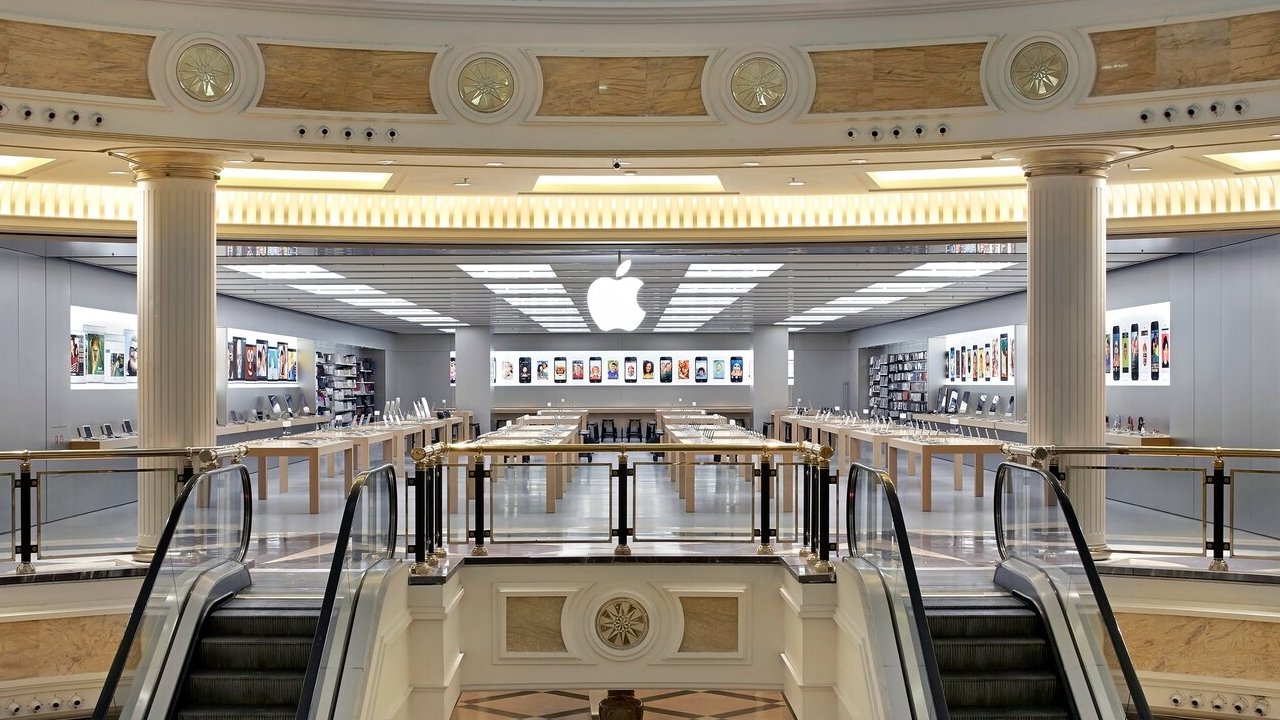Italy fines Apple, Google, $11 million over use of customer data
Italy claims that Apple and Google are together profiting from the use of user data, without telling those users what the purposes are. Its regulator has now fined the companies 10 million euros ($11.2 million).

Apple Euroma2 in Rome
Days after it fined Apple and Amazon a total of $230 million over alleged price fixing, Italy has imposed a new fine jointly on Apple and Google. This new move by the country's Competition and Market Authority, claims that the companies violate the Consumer Code.
"The Antitrust Authority has ascertained for each company two violations of the Consumer Code," said the regulator in a statement (in translation), "one for informative deficiencies and another for aggressive practises related to the acquisition and use of consumer data for commercial purposes."
"Google bases its economic activity on offering a wide range of products and services connected to the Internet... also based on user profiling and carried out thanks to their data," it continues. "Apple collects, profiles and uses user data for commercial purposes through the use of its devices and services."
"Therefore, even without proceeding with any transfer of data to third parties," it concludes, "Apple directly exploits its economic value through a promotional activity to increase the sale of its products and/or those of third parties through its App Store, iTunes Store and Apple Books commercial platforms."
The $11.2 million fine is the maximum allowable under Italy's consumer laws for these actions.
It also follows Apple being fined the same sum in 2020, that time over claims it misled consumers in marketing the water-resistance of its iPhones.
Read on AppleInsider

Apple Euroma2 in Rome
Days after it fined Apple and Amazon a total of $230 million over alleged price fixing, Italy has imposed a new fine jointly on Apple and Google. This new move by the country's Competition and Market Authority, claims that the companies violate the Consumer Code.
"The Antitrust Authority has ascertained for each company two violations of the Consumer Code," said the regulator in a statement (in translation), "one for informative deficiencies and another for aggressive practises related to the acquisition and use of consumer data for commercial purposes."
"Google bases its economic activity on offering a wide range of products and services connected to the Internet... also based on user profiling and carried out thanks to their data," it continues. "Apple collects, profiles and uses user data for commercial purposes through the use of its devices and services."
"Therefore, even without proceeding with any transfer of data to third parties," it concludes, "Apple directly exploits its economic value through a promotional activity to increase the sale of its products and/or those of third parties through its App Store, iTunes Store and Apple Books commercial platforms."
The $11.2 million fine is the maximum allowable under Italy's consumer laws for these actions.
It also follows Apple being fined the same sum in 2020, that time over claims it misled consumers in marketing the water-resistance of its iPhones.
Read on AppleInsider

Comments
What practices is it claiming Apple is engaging in? ... that it keeps the names of its customers and promotes new products to those customers?
How is that any different from any company that exists within Italy?
It almost seems like they're using tech companies as an income stream.
Let me see if I understand. If my fashion boutique categorizes all the people entering the store, passing by the racks of clothing, by age, look, style, by the location of where the trendy stuff is, by the lighting of the store, and how it influences the purchases, and on, and on. Then, make the proper arrangements and division of the potential of the clients browsing, purchasing, abandoning the stuff that they don’t like, what colours are more popular…, and I keep track of all the variations. Make a successful shop; and I refuse to share the information with the lazy guy across the hall. And, I grow because of my ingenuity, solutions, innovation, and as a result I leave the competition on the dust…, then, I am forced to share my data…?
Jayzzzuuuzzzzzz.
The problem is the platform owner, or company in a position of power, that is able to steer traffic and customer behaviour, and also being privy to a large amount of customer data, is able to use that to a competitive advantage in other, unrelated, or largely unrelated commercial activity. Google uses its power in search to push its web browser, web applications, shopping, and other services. Apple uses its power in operating systems and app stores to push its associated applications and services. This kind of use of power is what antitrust is all about.
It's not much different from Microsoft pushing Internet Explorer in the 1990s, which they were convicted over, in the USA.
Yeah, the dynamic is a bit different than what you're trying to portray here. Apple doesn't license platforms, operating systems, or eCommerce "stores", whereby a 3rd party can make use of those to deal directly with their own set of customers. Apple sells devices/services/products to people, so they have what is known as a direct relationship with their customers. A mall owner definitely does not have a direct relationship with every person that walks into the mall. So Apple is more like a shop owner - who owns their own building on their own land. They sell their own stuff along with goods from other 3rd parties.
Now, if your local shop was using digital means to do the same thing they may well find themselves in hot water if they did not comply with the law.
However if a law is not applied evenly across all industries, then it's merely a vehicle of extortion.